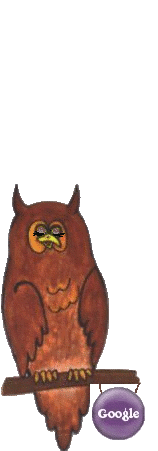

1. The ABC of Google for language learningWhat do you do if you find something interesting in a newspaper and want to learn more about it? Or if you see a film and would like to know more about the story behind it? What is the main tool you use when searching information for a presentation? The answer is probably Google, or any other Internet search engine. But did you know about the possibilities of using Google for language learning? Read on, and you'll learn more! The Google ABC. For improving your English - and virtually any other language skills - Google can be used for three basic purposes. For A, it works well as an online dictionary, offering not only knowledge on the search word but also other words and issues linked to it. For B, it provides a quick way of checking your grammar and phrase structures. Finally, for C, it can help you in finding suitable word combinations and idiomatic expressions. A. Google is often closer at hand than a dictionaryAt its simplest, Google works well as a dictionary search tool. If you run into an unfamiliar word or expression, just type it in the search box and click Search. Try it yourself!
B. Checking your grammar with GoogleThe frequency of phrasal verbs in the English language is a good example of how important it can be to choose the right word combinations for appropriate meaning and correct grammar. Choosing a wrong preposition to accompany a verb may result in an error in meaning, for example if you think of carry on and carry out, or get on, get out and get into. But the verb+preposition combination may also be a source of grammatical errors, when an inappropriate preposition is selected. To speak and write English that is grammatically correct, you have to know these combinations by heart - or, you have to have the tools available for checking them! Google can easily be used for checking your grammar issues. Sometime it's enough just to run a search with single words as you did just above. However, often a search with an entire phrase can produce more useful results.
Try it yourself!
Having noted the two figures in their places, consider the following questions. When ready, click Bernie the Owl for feedback.

Good to know. C. Finding idiomatic expressions and collocations is as simple as..Typical of the English language is that it makes use of idioms and the role of finding the right collocations is essential for understanding and producing the language. As a learner of English you may often find yourself in a situation where you hesitate to use a phrasal verb or a fixed expression, often beacause there's uncertainty over the correct form or appropriate usage. Google can offer a quick fix in cases like this. Try it yourself!

Search tip! Now that you are familiar with the basic ideas of using Google as a tool for language learning, move on to the next section for Advanced Google. |